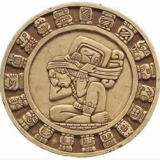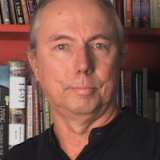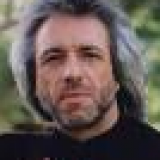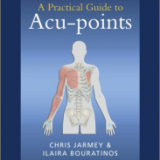Pranic Therapy – Part 1: Introducion to Pranic Therapy and Rise of Holistic Health
By G. Kumar
Pranic Therapy is an alternative system of Medicine using therapy with the Universal Stream of Consciousness, the Cosmic Prana.
Pranic Therapy can be effected by proper knowledge of the psycho-physical organism, physical and mental discipline and opening all our channels to the Cosmic Prana. This is normally effected in seven steps:
The Seven Stages of Pranic Therapy
- Knowledge of the Psychosomatic Machine
- Regulation of Sleep, food & Exercise
- Relaxation
- Attunement to Biorythms (Circadian Rhythms, Solar & Lunar Rhythms)
- Removing mental blocks (Difficulty due to Repression)
- Overcoming Prajnaparadha (Fault of Awareness due to misuse of our cognitive & conative functions)
- Opening the system to the Cosmic Prana (Opening all channels to the Divine Shakti)
Introduction
With the advent of rapid industrialization, urbanization and the breakdown of family life after the Second World War, social life in the West became tense and stressful. The spread of materialistic ideas and ideals and the erosion of faith in Morality and the Law Divine and the social disturbance caused by the Vietnam War brought a sense of futility and meaninglessness in the Western psyche.The limitations of the Western system of chemotherapy and adverse side-effects of antibiotics, sedatives and certain other drugs and the disillusionment with the promises of science and technology made millions turn to Oriental philosophies, divine practices and systems of therapy.
The response from the Orient was benevolent. Favoured by the social revolution that swept through several countries in the West in the 1960s, these countries, especially the U.S., came to be flooded with Gurus and Yogis. Yoga, TM, Reiki, – all attained world-wide popularity.
Three Modern Movements
As a byproduct three modern movements came into being. They are Neo-humanisn, interreligious dialogue and Holistic Health. The term ‘Neo-humanism’ refers to a basic change in modern man’s attitude towards himself and his fellowmen which is characterised by:
- The recognition of the essential goodness of man
- Focus on existential problems
- Striving for higher transcendental experience.
The contribution of Ramakrishna Movement to inter-faith dialogue was immense. Other movements like Maharshi International University and Self Realisation Fellowship contributed to this change in the human mindset.
Holistic Health
Holistic Health refers to a modern movement which regards health as a dynamic state of the total human being. Although the symptoms of a disease may be found in certain tissues or organs, health is not a mere removal of such symptoms by the treatment of the affected tissues or organs, but a state of multidimensional experience, according to this perspective. The mind, body and environment are in a state of dynamic interaction and the maintenance of this interaction in an optimum state of efficiency is what health means. In other words “To be healthy is to have the ability to live with full use of our faculties and be vigorous, alert and happy to be alive, even in old age, despite an occasional bout of illness.” This “operational health” has been defined as wellness. It is a sense of all-round well-being as contrasted with illness.
The greatest aspect of holistic health is its recognition of the role played by mind in health. “Mind is omnipotent” said Freud and he had shown that the Unconscious played a key role in causing certain diseases which came to be described as psychosomatic diseases. He looked upon the Unconscious chiefly as the repository of negative emotions. His early disciple Carl Jung expanded the concept of the Unconscious to make it include good emotions and even spiritual urges. Adler, another disciple of Freud showed that the ego could alter unconscious behaviour.
The connecting link between the body and mind was not clear. The work of the Canadian endocrinologist Hans Selye brought the much needed connecting link. In his classic work “The Stress of Life”, Selye showed that mental stress was the root cause of several types of common illness such as hypertension, hyperacidity etc. The ‘stressor’ (the original source of stress) excites the hypothalamus in the brain. This vital organ which controls the autonomic nervous system activates the pituitary to secrete the stress hormone (known as ACTH) which stimulates the secretion of several hormones and steroids (including the well known, adrenaline or epinephrine). More sugar is released into the blood and BP increased as a result of these changes. According to Selye, stress is unavoidable in life. (The emotional centre in the brain, when upset, stimulates the oxintic cells to secrete more hydrochloric acid in the stomach which leads to hyperacidity.) When it goes beyond a certain tolerance level (which varies from person to person) the system breaks down resulting in illness.
To the scientific picture of body-mind interrelationship given above, certain new concepts were added. One was the idea that if negative emotions could cause illness, positive emotions can cause “wellness”. The attention of medical experts and the imagination of the public was captured by this innovative idea when Normal Cousins, editor of Saturday Review, published a convincing account of his recovery from a debilitating and incurable disease of the connective tissue. The patient’s understanding of the disease and his active participation in the recovery process was highlighted by his case.
The most difficult and controversial aspect of holistic health is another idea that by creating proper awareness within himself man could exercise a certain degree of voluntary control over the healing processes taking place in his body. After the aftermath of Pavlov’s demonstration of conditioned reflexes, another Russian scientist K. M. Bykov and his colleagues showed in 1924 that several involuntary processes such as regulation of body heat, heart rhythm, production of urine, BP etc which were mediated by the autonomic nervous system could be brought under voluntary control. The above finding was corroborated later during experiments conducted on animals under ‘operant’ (voluntary) conditioning. Hundreds of people found that they could bring under control their heart rhythm, brain waves etc with the help of the biofeedback technique. Indian Yogis in the West also demonstrated that they could alter metabolic rate, heartbeat, body temperature etc simply by their will power, without the use of any biofeedback instruments.
Holistic health practioners invaded the scene at this juncture. They showed that not only certain organs but the working of the whole system such as the digestive system, the respiratory system, circulatory system etc (known as the Systems concept) could be regulated simply by changing one’s life-style and affinities. It was claimed that even diseases such as cancer could be cured or held in check by creating strong faith and the right type of consciousness.Despite the exaggeration and the propaganda which accompanied these claims, the basic idea that man can consciously regulate involuntary and unseen physiological processes came to be accepted as a fact by the medical community.
Various meditation techniques like Transcendental Meditation, Zen, and Yoga were becoming popular in the West in those days. Apart from the spiritual benefits, (In Transcendental Meditation, the existence of a fourth major state of Consciousness called Transcendental Consciousness was proved by Dr Keith Wallace in his Ph.D Thesis) practical Yoga teachers showed that meditation also produced other beneficial effects such as reduction of tension, lowering of BP, relaxation of muscles, increase of concentration and work efficiency & even increase of immunological resistance to diseases. As a result, some form of meditation has become an essential part of most holistic health programmes. (Dr Harold Bloomfied says that TM can be used as an adjunct to psychiatric practice.)
The success of Acupuncture, herbology etc which came to be recognised as “Alternative Medicine”, lent much support to the holistic health position. Two great discoveries strengthened this position. One was the discovery of ‘biological clocks’ in nature and the existence of biorhythms in the human body. The other discovery was that the brain produced certain neuro-modulators called endorphins which have the property of reducing pain. The production of these natural painkillers is influenced by our thoughts and endorphins are produced when our EEG brain waves are in an alpha state (8.5 cycles per sec).
next >






